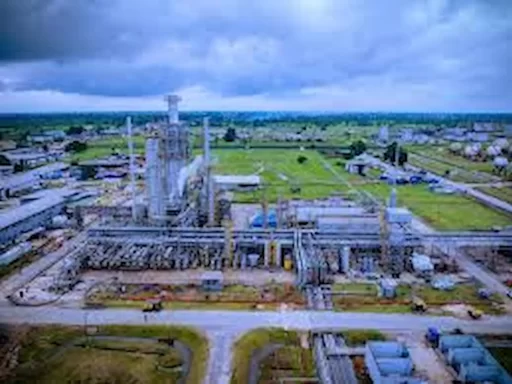Shell Urges Policy Stability, Infrastructure Investment to Unlock Nigeria’s Gas Opportunities
By Naija Enquirer Staff
Shell Energy Nigeria has called for sustained policy stability, investment in gas infrastructure, and stronger partnerships across the energy value chain to fully unlock Nigeria’s vast gas opportunities and accelerate economic growth.
This call was made during the 3rd edition of the Gas Investment Forum held in Lagos, where government officials, investors, and energy experts discussed strategies to strengthen Nigeria’s gas industrialisation drive.
The General Manager of Shell Energy Nigeria, Markus Hector, and the Managing Director of Shell Nigeria Gas (SNG), Ralph Gbobo, highlighted the need for collaboration between international oil companies (IOCs) and local independents to promote investment, efficiency, and sustainability in the gas sector.
Speaking through Chuka Amos-Ejesi, Head of Portfolio, Regulation, and Supply at Shell Energy Nigeria, Markus Hector said collaboration is central to Nigeria’s success in achieving its energy transition goals.
“There is a clear strategic case for collaboration. IOCs bring international experience, strong technical capacity, and deep financial reserves, while local operators contribute agility and contextual understanding of the Nigerian environment,” he stated.
Hector emphasised that such partnerships should also focus on building local capacity in engineering, supply chain, operations, and maintenance to ensure the long-term growth and resilience of the gas industry.
In his remarks, Ralph Gbobo noted that Shell Nigeria Gas (SNG) continues to invest in gas infrastructure by developing gas hubs in Port Harcourt, Aba, Ota, and Yenagoa, with plans to expand to other industrial cities across Nigeria.
“Infrastructure is the backbone of Nigeria’s gas industrialisation. Strategic investments in this area will improve access, reduce operational costs, lower emissions, and make gas a more attractive and sustainable energy option,” Gbobo said.
He added that policy clarity and consistency remain vital to attracting long-term capital investment, while effective collaboration between the public and private sectors is key to innovation and scaling new solutions.
“The opportunities in Nigeria’s gas sector are immense. Gas will continue to play a central role in the nation’s energy transition, providing reliable power, creating jobs, and driving industrial diversification and regional trade,” Gbobo added.
The Gas Investment Forum brought together stakeholders from the upstream, midstream, and downstream segments of the gas value chain to explore investment opportunities and strengthen Nigeria’s position as a regional leader in gas development and utilisation.







